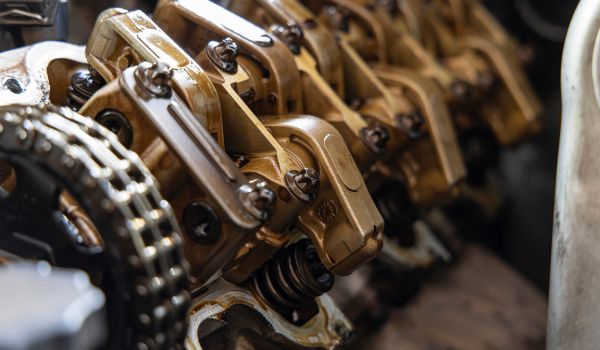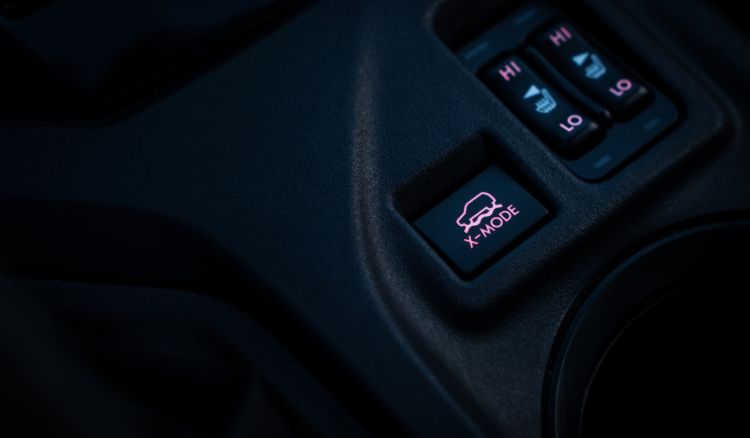If you were moving and heard your engine making a strange knocking or ticking sound, that sound might be “lifter noise.” Most of the time, this noise, which can be annoying or even scary, means that there is something wrong with the engine’s valve train. Causes of Lifter Noise, and how do I fix it?
There are many things that can go wrong with oil that can make lifters make noise. Including engine deposits, lifters that aren’t designed right, an oil pump that won’t work, and air getting stuck in the lifters. When you have these issues, you may need to check the oil amount and quality and possibly get some mechanical repairs or replacements.
What could be Causes of Lifter Noise?
1. A low level or pressure of oil
Most of the time, low oil pressure or amount is Causes of Lifter Noise in your car’s engine. This happens since the lifts need a steady flow of oil to work well. This is what you need to know and how to fix it.
The oil pressure in hydraulic lifters keeps everything running smoothly. It’s not possible for these lifters to do their job when the oil amount or pressure drops. When the lifter tries to keep going without enough oil, it often makes a clear ticking or knocking sound.
How to Look Over and Fix
First, check how much oil is in your engine. Make sure the ground is flat and the engine is cool.
To check the level, take out the tester, clean it, put it back in, and then take it out again. You should add more oil if it doesn’t hit the “full” mark.
If you see that the oil amount is low, add the right kind of oil for your car. The right oil will be written in your car’s instructions.
The dashboard of almost all cars has a gauge or light that shows the oil pressure. If you see a warning light or low pressure, it means that something more important might be wrong.
2. Engine oil that is dirty or old
The engine oil in your car gets dirty and full of other junk over time. This could make a sludge that stops the tiny holes that oil needs to go through to keep the lifters smooth. Also, old oil doesn’t protect as well because it gets thinner and can’t grease the lifters as well.
How to Make It Right
When your car’s maker tells you to, change your engine oil and filter. This will stop Causes of Lifter Noise by dirty oil. This cleans and keeps the oil fresh.
It’s important to use the right kind and grade of oil for your car. Better oil helps your engine more and lasts longer.
Your oil might be getting dirty really quickly after you change it. This could be a sign of a bigger problem in your engine, like a leak. This is a sign that you should have a mechanic look at your car.
3. Tears and wear
The lifters in your engine are under a lot of stress and are always moving. Even though they last a long time, all mechanical parts wear out over time. This wear and tear can make them less able to keep their space and movement, which can cause noise.
How to Make It Right
There’s not much you can do besides check your car regularly and listen for any strange sounds. A mechanic should look at your car if you hear a clicking sound. They will be able to tell if the lifters are broken.
4. Lifters that fell over
Each handle has a part that needs to be under a certain amount of pressure in order to work right. But this system can sometimes stop working. Either because it’s worn out or because of a bug. And when that happens, the lifter falls apart, which messes up the movement of the valves and makes the engine make that annoying banging or ticking sound.
How to Make It Right
Keep an ear out for a ticking sound that won’t go away, especially when the engine is going but not yet warm. If you hear that, you should get your car checked by a mechanic. That’s likely what needs to be done. It can be pricey, but you have to do it.
5. Wrong viscosity of the oil
Each engine work with a certain thickness of oil. Because of the cold weather, if the oil is too thick, it might not move right to the lifters. If the oil is too thin, on the other hand, it might not absorb shock or lubricate well enough, which could lead to more noise and friction.
How to Make It Right
Depending on the weather, you may need to change the thickness from time to time. In this case, you might want to choose a lighter oil if it’s really cold.
Make sure you use the right volume when you change your oil or have it changed. It’s an easy and effective way to stop lifter noise and other annoying engine problems.
6. Engine Buildup
Buildups of things like carbon can get into your engine over time and make it not work right. This can affect the lifters and other parts of the engine.
The tiny oil tubes in the engine could clogg up with these deposits. When that happens, oil can’t get to the lifters easily. The lifters need oil all the time to work right. If you don’t grease them, the lifters might start to make noise, which means they’re not working right.
How to Make It Right
Putting good fuel and oil into your engine can really help keep deposits from building up. In fact, some oils are clean and stop gunk from building up.
If you change the oil and filter and do other normal maintenance on your engine, those deposits might not build up in the first place.
You might need to do an engine clean if there are a lot of deposits. It is part of this process to add a cleaning solution that will break down those annoying spots.
7. Bad design of the lifter
The lifters can sometimes make your car’s engine make noise. Depending on how their lifters are made. Some engines may be more likely to make noise, especially in some situations or as they age.
People who make things sometimes use lifts that are more likely to wear out or make noise. This might be because of the lifter’s size, the materials it’s made of, or some other part of its design.
Some GM cars are more likely to have these kinds of bad lifter systems. There have been stories and complaints about problems with the valve lifters in cars with L84 or L87 V8 engines. Some engines, like the N20 and N55 engines, gave BMW trouble as well.
How to Make It Right
It’s good to know if your car model have problems with lifter noise. Check out some groups and sites, or ask your mechanic about Causes of Lifter Noise that often happen with certain models.
Even if the problem is caused by bad planning. Regular maintenance can help make it less of a problem. You can lessen the effects of a lifter design that isn’t perfect by keeping your engine well-oiled and repaired.
There are times when you can find extra parts that fix problems with the original one. Fix Causes of Lifter Noise for longer by upgrading these parts.
8. Pump Not Working
If your oil pump breaks, it’s a big deal for your car. That annoying lifter noise you may have heard can be caused by it. So, the oil pump is what keeps the oil pressure in the engine at the right amount. There won’t be enough pressure to keep those lifters working smoothly, though, if it breaks or doesn’t do its job right.
How to Make It Right
Low oil pressure lights on your dashboard or a noticeable drop in engine speed could mean that your oil pump is broken.
Before you decide that the pump is to blame, check to see that the oil amount is correct and that the oil is in good condition.
Figuring out what’s wrong with an oil pump and fixing it can be hard. You should get your car checked out by a mechanic if you think the oil pump is acting up.
9. Lifters with air in them
Lifter noise can happen when air gets stuck in your car’s lifters. To work well, hydraulic lifters need just the right amount of oil and pressure especially. But when air gets into the system, it throws off the balance, which makes the lifter work less well and make that annoying noise.
Even if the oil isn’t getting enough air, air can still get into the lifter system. This can happen if the oil amount is too low, if the oil is filled wrong, or if there are problems with the oil system in the engine. When there are air bubbles in the oil, they don’t squeeze the same way as the oil, which makes the lifters not work right.
How to Make It Right
Make sure that your car engine has enough oil. Air getting into the system is often caused by not having enough oil.
To keep from adding air to the engine when you change the oil, make sure you follow the right steps. That means running the engine for a while after the change to get rid of any air.
There are times when you need to “bleed” the lifters to get rid of any air that is stuck inside. The exact steps can be different for each car, so you might need help from a professional.
Things could be wrong with the oil system if air keeps getting into the lifters. Someone who works on cars can look at it and see if there are any issues, like broken seals or valves that are letting air in.
Conclusion
There could be a lack of oil, old or dirty oil, worn-out parts, or something else wrong if your car’s engine is making ticking or hitting sounds. Taking good care of your car is the best way to stop these noises.
Check the oil amount and change it when it needs it. It’s a good idea to have a mechanic look at the problem if it seems big, like when parts break or the oil pump stops working. Taking care of your car’s engine on a regular basis can keep it going well and stop bigger problems from happening in the future.







